Search Images
Browse Content (p. 1174)
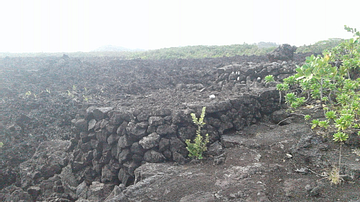
Image
Kukii Heiau Cairn, Front View
This is a photo of a cairn (ahu) of the Kukii Heiau, an Ancient Hawaiian temple. The photo displays a frontal view of the foundations of the cairn, which was built in the 15th century CE and served as a spiritual altar.
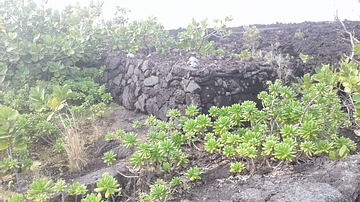
Image
Kukii Heiau Cairn, Hawaii
This is a photo of a cairn (ahu) of the Kukii Heiau, an Ancient Hawaiian temple. The photo displays a view of the foundations of the cairn, which was built in the 15th century CE and served as a spiritual altar.
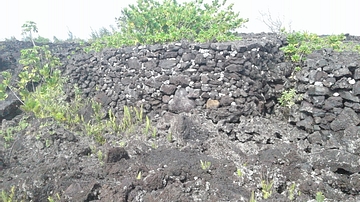
Image
Kukii Heiau Cairn, Hawaii
This is a photo of a cairn (ahu) of the Kukii Heiau, an Ancient Hawaiian temple. The photo displays a frontal view of the foundations of the cairn, which was built in the 15th century CE and served as a spiritual altar.
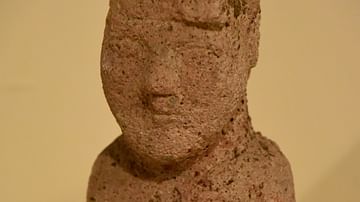
Image
Bust of Goddess Cybele from Gordium
This is a limestone bust of the goddess Cybele. 6th century BCE. From Gordium (or Gordion), the capital city of ancient Phrygia. (Museum of Archaeology, Istanbul, Turkey).
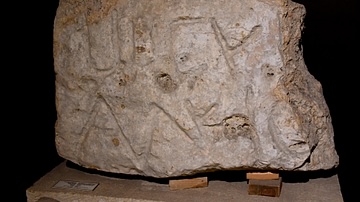
Image
Inscription Bearing the Name of Alkios
This is a fragment of a boundary description, which mentions the name of the Governor Alkios. Limestone. Roman Period, 1st century CE. From Gezer (Tell el-Jezer), in modern-day State of Israel. (Museum of Archaeology, Istanbul, Turkey).
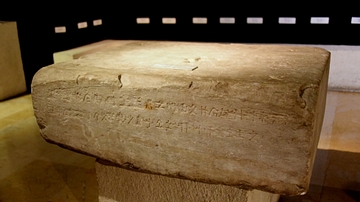
Image
Inscribed Base of a Statue from Palaepaphos
There are two lines of inscription on this marble stone, which read: "Nikokles, King of Paphos, Wanassa Priest King, Son of Timarkhos, erected for goddess". Early Hellenistic Period, end of the 4th century BCE. From Palaepaphos (Kouklia...
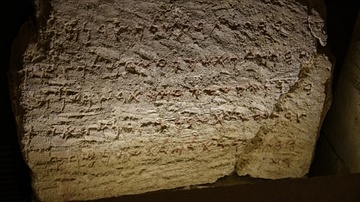
Image
Phoenician Foundation Inscription from Sidon
The inscription reads (in Phoenician) "Bodastarte, the son of Eshmunazar, the king of Sidon, has ordered this temple to be built for the god Eshmun". Second half of the sixth century BCE. From the foundation wall of the Eshmun Temple at Sidon...
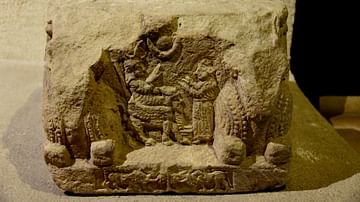
Image
Votive Altar for Astarte
This is a limestone votive altar dedicated to the mother goddess Astarte. End of the 5th century to the beginning of the 4th century BCE. From Lebanon, probably from Fii village. (Museum of Archaeology, Istanbul, Turkey).
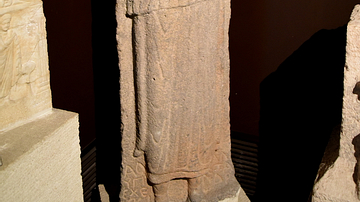
Image
Funerary Stele of Errethas and Marthes
The inscription on this basalt funerary stele mentions the names of Errethas and Marthes. Roman Period, January 109 CE. From Damascus, in modern-day Syria. (Museum of Archaeology, Istanbul, Turkey).
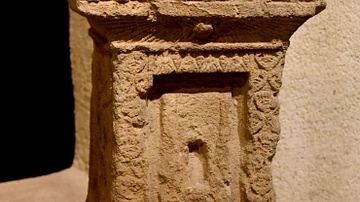
Image
Egyptian-Type Votive Altar from Sidon
This marble votive stele has an Egyptian style (note the row of uraeus cobras at the top). First half of the 5th century BCE. From Sidon, in modern-day Lebanon. (Museum of Archaeology, Istanbul, Turkey).